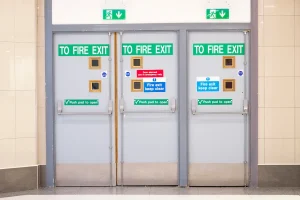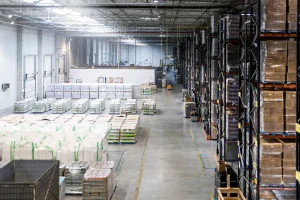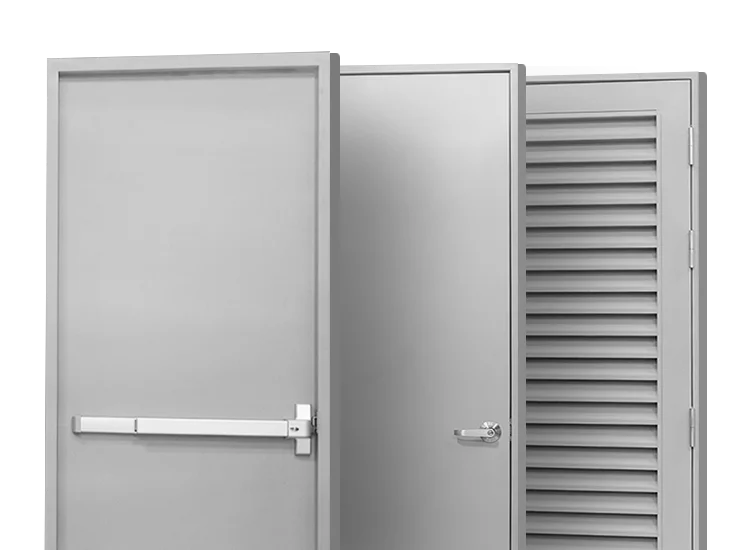Given the complexity of operations and demands in the industrial field, each part of their building facility is vital to maintain security, efficiency, and compliance with regulations. And among these essential elements is the industrial door — a robust and reliable solution capable of protecting the most hostile settings. But what more can industrial doors do for industrial buildings than just acting as a sturdy barrier and protector?
In this blog post, we will examine the various types and uses of industrial doors, as well as determine when a replacement is necessary to maximize the efficiency of your facility’s operations. Read on.
What is an Industrial Door?
An industrial door is a type of door designed for use in industrial environments such as warehouses, factories, and distribution centers. Their primary function is to provide security, ease of access, and protection against environmental factors such as dust, noise, and temperature variations.
With their durability and reliability, these doors are built to withstand heavy usage and harsh conditions. It also comes in a variety of styles, including roller shutters, sectional doors, high-speed doors, and fire-resistant doors, each tailored to specific applications and requirements.
Different Types of Industrial Doors and Their Uses
As previously stated, industrial doors are crucial components in manufacturing and warehousing operations that come in a variety of styles. Depending on the setting, different kinds of industrial doors can be used to meet the facility’s specific needs.
If you’re interested in purchasing industrial doors, here’s an overview of several kinds of this door, their intended use, and distinct advantages to help you choose:
Roller Shutter Doors
Roller shutter doors are commonly used in warehouses, factories, and loading bays, especially in areas requiring frequent access like delivery and dispatch zones. They offer a space-saving design by rolling up into a compact area above the door, providing excellent security and weather protection. Additionally, they can be motorized for ease of use.
High-Speed Doors
High-speed doors are ideal for high-traffic areas such as distribution centers, cold storage facilities, and food processing plants, where they help maintain hygiene and temperature control. They operate quickly to minimize open time, reducing energy loss, maintaining clean and controlled environments, and enhancing operational efficiency.
Sectional Overhead Doors
Sectional overhead doors are commonly used in industrial and commercial buildings, particularly for large openings like vehicle entrances, making them ideal for logistics and transport companies. These doors offer good insulation and sound reduction, can be customized with windows for natural light, and are durable enough to withstand harsh environmental conditions.
Fire-Resistant Doors
Fire-resistant doors are crucial in buildings requiring compartmentalization to prevent fire spread, such as chemical plants and manufacturing facilities, and in areas where fire safety is paramount. They help contain fire and smoke, protecting both people and property, and comply with safety regulations. These doors often have a rating indicating their fire resistance duration.
Sliding Doors
Sliding doors are ideal for spaces with limited headroom or restricted door swing, commonly used in large industrial complexes and storage facilities. They are easy to operate, can be automated, and provide a wide opening suitable for moving large machinery or goods. Additionally, sliding doors can be designed to be fire-resistant or insulated.
Folding Doors
Folding doors are commonly used in industrial settings, such as aircraft hangars and large vehicle storage facilities, where wide openings are required but space for door retraction is limited. They offer the benefits of being able to fold away for full use of the opening, handling large openings robustly, and improving energy efficiency through insulation.
PVC Strip Curtains
Polyvinyl chloride or PVC strip curtains are widely used in warehouses, cold storage areas, and food processing plants for controlling temperature, dust, and pests while allowing easy access. They are cost-effective and easy to install, offering visibility and light transmission while serving as a flexible barrier that can be customized to fit various openings.
Blast-Resistant Doors
Blast-resistant doors are crucial in high-risk environments like chemical plants and military bases, offering protection from explosions. They withstand powerful forces, ensuring safety for personnel and equipment. These doors are customized to meet stringent safety standards, providing both security and resilience in hazardous settings.
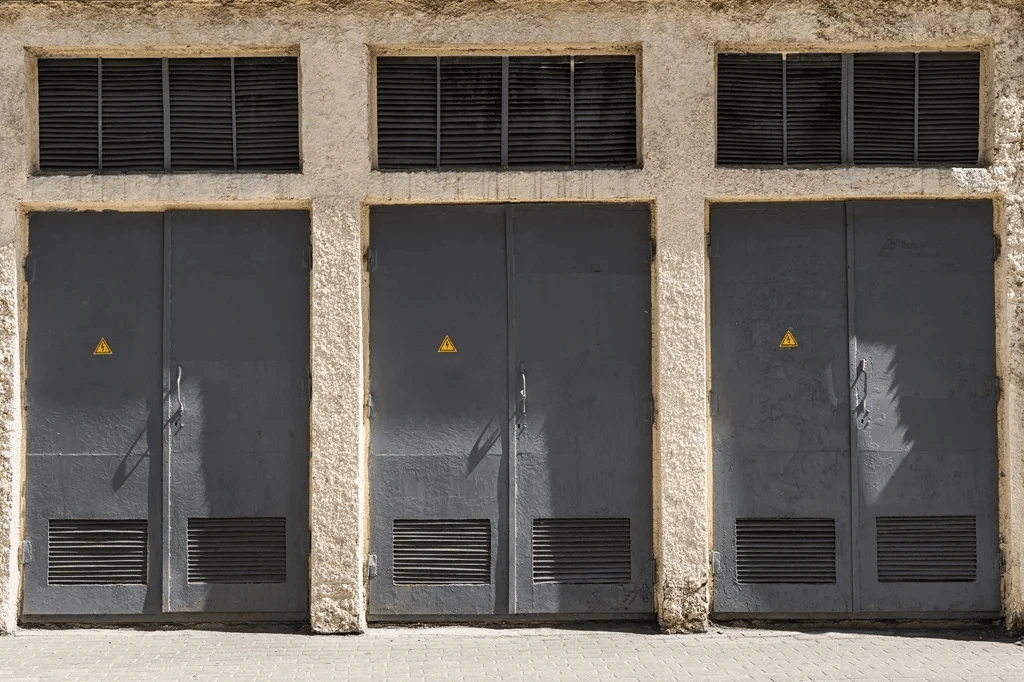
When is It Time for an Industrial Door Replacement?
Knowing when to replace an industrial door is crucial in maintaining safety, security, and operational efficiency especially in this type of environment. Here are five signs that indicate it might be time for a replacement:
1. Frequent Breakdowns
If your industrial door frequently malfunctions or requires constant repairs, it may be more cost-effective to replace it. Frequent breakdowns can lead to downtime, affecting productivity and safety.
2. Visible Damage
Obvious signs of wear and tear, such as rust, dents, or cracks, indicate that the door’s structural integrity is compromised. This not only affects the door’s performance but also poses safety risks.
3. Difficulty in Operation
If the door becomes increasingly difficult to open or close, it may be due to worn-out components or misalignment. Struggling with door operation can cause delays and safety hazards in an industrial environment.
4. Energy Inefficiency
Older doors might not provide adequate insulation, leading to higher energy costs. Modern industrial doors are designed to be more energy-efficient, helping to reduce heating and cooling expenses.
5. Non-compliance with Safety Standards
Regulations and safety standards evolve over time. If your current door does not meet the latest safety requirements, it’s crucial to upgrade to a compliant door to ensure the safety of your facility and employees.
Factors to Consider When Choosing an Industrial Door
When choosing an industrial door, several important factors should be considered to ensure it meets the specific needs of your facility. Here are some of them:
First, understand your security and other building requirements.
When choosing an industrial door, one factor to ponder is security requirements. Assess the necessary level of security based on the value and contents of stored goods. You may also explore options with integrated access control systems such as keypads, radio frequency identification (RFID) readers, or biometric scanners.
Give maintenance and durability the utmost importance.
Industrial doors are subject to frequent use and harsh operating conditions, making durability and maintenance an essential consideration. Select a material that meets durability needs and suits environmental conditions, like steel, aluminum, or fiberglass. You may also want to evaluate maintenance needs and frequency to minimize downtime and repair expenses in the future.
Check the insulation and climate control properties.
Proper insulation and climate control are very crucial in industrial operations. So, go for insulation tailored to the climate and usage to enhance temperature regulation and energy efficiency. Also, make sure the door includes effective sealing features like weather-stripping and seals to prevent drafts, dust, and moisture from entering.
Find the right door size based on operational needs.
Industrial doors come in various sizes suitable for different operational needs. Meaning, it’s crucial to measure dimensions accurately to accommodate large vehicles or equipment. Additionally, select the appropriate operation type — manual, motorized, or automated — based on frequency of use and convenience.
Strike a balance between upfront costs and long-term value.
Select doors with minimum maintenance requirements and which prioritize energy-efficient options to gradually lower operating expenses. Additionally, choose quality components to increase the door’s longevity and check if the manufacturer offers a warranty coverage to have extra security against unforeseen problems.
Make sure it meets regulatory requirements and upholds safety standards.
Since most industrial facilities must adhere to various regulations and standards related to safety and environmental protection, you need to ensure that it meets local building codes and regulations. You may also look for safety features such as sensors, emergency stops, and audible alarms to enhance safety and prevent accidents.
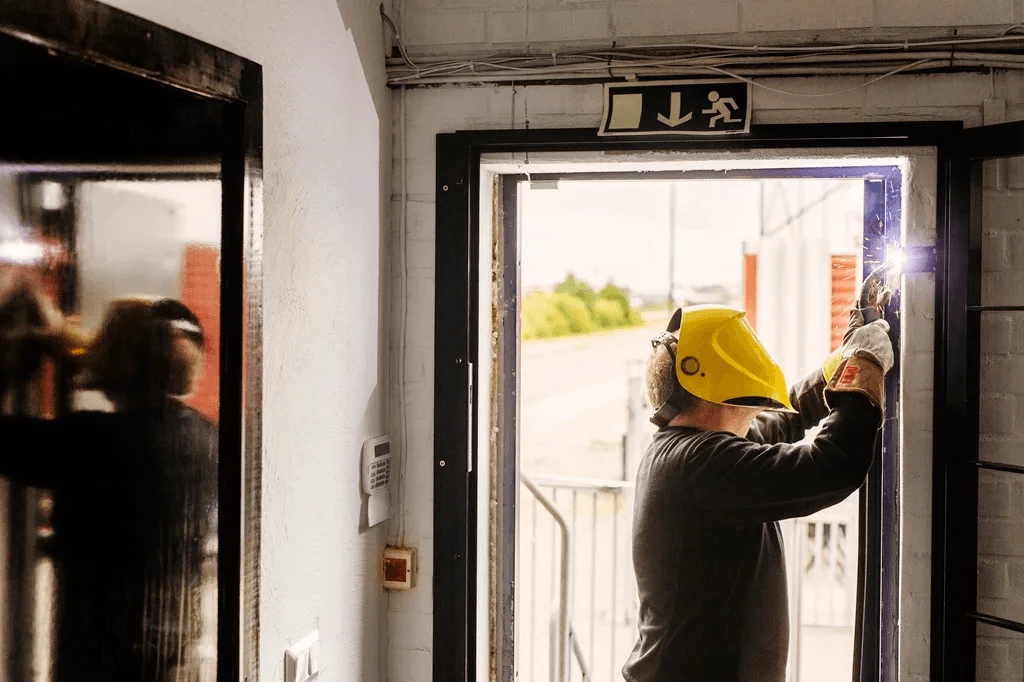
Ensure Your Facility’s Security with Janus Steel’s Industrial Doors
Overall, selecting the right industrial door is key to ensuring the security of industrial facilities. And by familiarizing yourself with different types of industrial doors, you can make smart decisions in selecting industrial doors that precisely align with your building operational needs.
Ready to purchase the best industrial door for your property? Partner with us! At Janus Steel, we specialize in providing a wide range of industrial steel doors crafted to meet the distinct demands of our clients. Connect with us today or check our extensive selection of steel door solutions that will surely help you improve the functionality and safety of your industrial facility!


